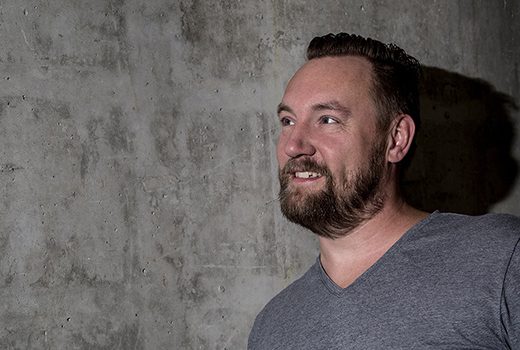As human beings, we set great store in the idea of originality. We enjoy it when we see it in sport – the footballer who plays an unthinkable pass, or the chess player who makes a move that no one else would see. These people are the norm breakers – the ones who disrupt traditional ways of doing things, and who show everyone else that there are many different ways to approach challenges, if only we have the vision to look.
Of course, we see these people in business too, and they are the kind of individuals who I have always enjoyed spending time with and working alongside over my career. I have found that you meet plenty of them within the entertainment and technology industries in particular, and I have always been impressed by anyone who is willing to push against the status quo and to think in a more original way about age-old challenges.
The world changers
With this in mind, I have really enjoyed reading ‘Originals — How Non-Conformists Move the World’ by Adam Grant. Much of what he says really chimes with my own experiences with these kinds of people in business, and his thoughts on how to develop and encourage this kind of original thinking within our own organisations are very insightful.
Grant’s hook is that it is these people – who he calls ‘Originals’ – who are the ones who are behind most of the major transformative changes that we see in the world around us. He then looks at where Originals have succeeded, as well as where they have failed, and attempts to draw lessons from these experiences that might be applied in our businesses.
Grant makes the point early on in the book that there are actually plenty of creative people out there, with lots of new ideas – but that the difference we see with ‘Originals’ is that they actually make their ground-breaking ideas happen.
The power of the unfinished idea
One the most fascinating insights into how they do this comes with his idea of ‘strategic procrastination’. Grant’s insight is that original thinking, or creativity, isn’t always an instant process (he gives the example of Michelangelo, who took years to be persuaded to paint the Sistine Chapel ceiling because he saw himself primarily as a sculptor).
This extended gestation period for an idea is absolutely crucial, because the longer it exists as an incomplete idea, the greater the opportunity there is for it to develop and change. If Michelangelo had agreed to do the ceiling straightaway, picked up his brush, climbed the scaffolding and put his first ideas down in paint, the finished result may well not have been the work of genius it is acknowledged to be today. So, for those of us trying to introduce originality into our own teams, it is important to see that an idea is often at its most powerful when it is still not quite fully formed.
The emotional challenge of originality
Grant also places emotions at the very heart of this struggle to develop originality within our organisation. He makes the great point that the kind of change that original thinking brings is often extremely emotionally challenging. By their very nature, original ideas are something out of the ordinary and can be a deeply disrupting force.
Therefore, original thinkers, who want to introduce a new idea, face a twofold challenge. The first is to manage the emotional reactions of other people. The fresh ideas that they bring to the table may actually be very disturbing to people who are used to working in a particular way – it could fundamentally alter the way that that they think about their own role and responsibilities. But getting these people on board is also fundamental to addressing the second challenge – that of managing your own emotions about the idea.
Original thinking is just that – a way of doing things that hasn’t been done before – and being the first to suggest or to attempt to do something can actually be very stressful. By bringing other people on board, original thinkers can slowly but surely build a movement behind their ideas – and form a support network that will help them to challenge accepted wisdom.
Creating a sense of purpose
A key part of achieving this is through something that I have experienced myself many times throughout my own career: It is the power that lies behind explaining not ‘how’ something will be done, but instead showing everyone ‘why’ it needs to be done.
Giving people this deeper sense of purpose, and instilling in them a feeling that there is a bigger vision that everyone can achieve together is crucial. Doing this, creates an environment in which original thoughts are given the room to thrive, and it builds a culture in which people see the benefit of investing in big ideas that contribute to something ultimately much bolder than the day to day ups and downs of business.
Original thinking, that can truly transform a business, needs time, space and the buy-in of other people in the company to succeed. The challenge for all of us then is to recognise it and to support it whenever and wherever we can.










1 thought on “The importance of originality in business, and how it leads to success”
Comments are closed.